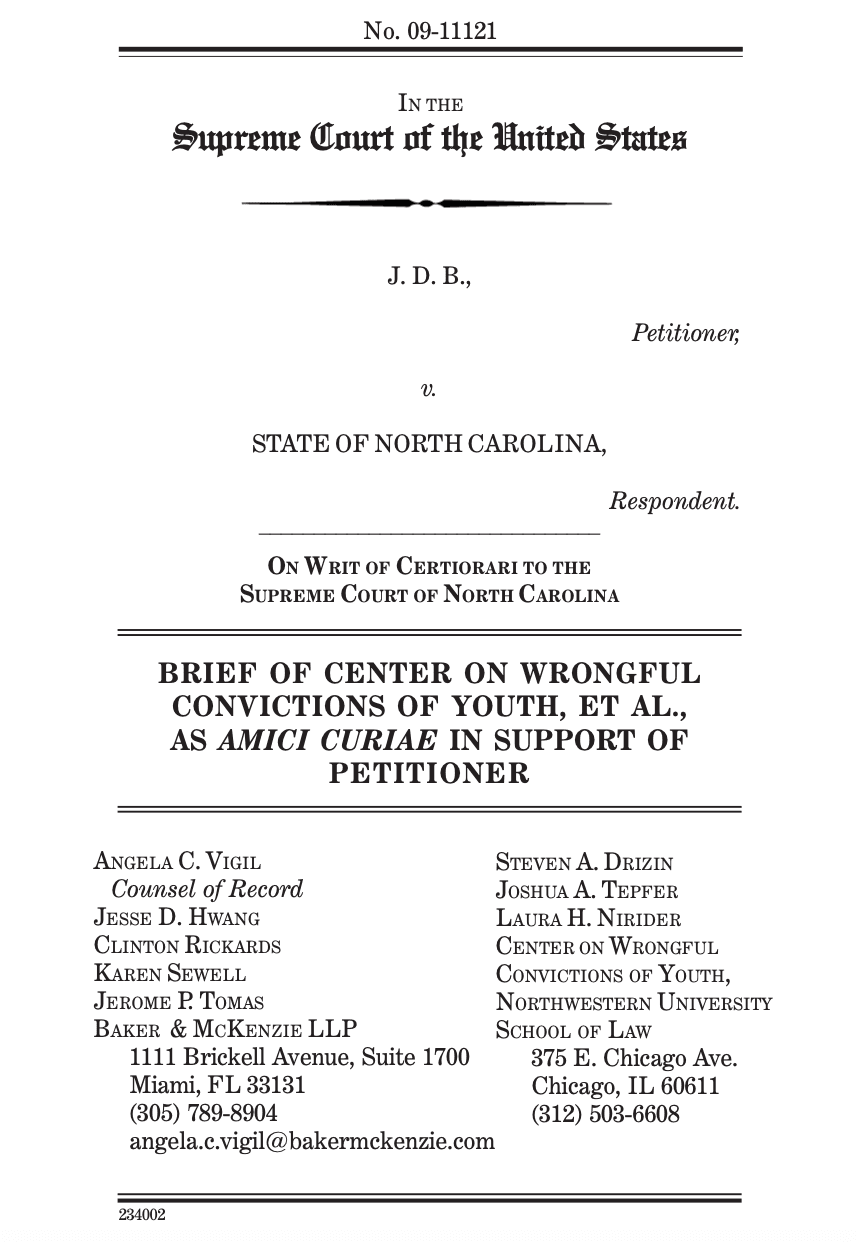
Summary of Argument
The Miranda rule is an important safeguard that was designed to protect against coerced and unreliable statements. Indeed, this Court created the now famous Miranda warnings to counteract the “inherently compelling pressures” that define a police interrogation. Miranda v. Arizona, 384 U.S. 436, 467 (1966). These pressures have proven to be so powerful that they can “induce a frighteningly high percentage of people to crimes they never committed.” Corley v. United States, 129 S. Ct. 1558, 1570 (2009). Recent empirical and social science research only confirm what was stated by this Court forty-three years ago: when it comes to children and young adolescents, there may be even more reasons to “distrust” interrogation-induced confessions. See In re Gault, 387 U.S. 1, 48-52 (1967); see also Steven A. Drizin & Richard A. Leo, The Problem of False Confessions in the Post-DNA World, 82 N.C. L. Rev. 891, 944-45 (2004), cited in Corley, supra (noting that 35 percent of 113 proven false confessions were made by individuals under the age of eighteen).
Where other briefs presented to this Court underscore why age must be a factor in the custody determination of Miranda, Amici submit this brief to emphasize that, if it is not, there will be an increase in uncounseled and potentially unreliable confessions from children. This is especially so in the context of an inschool interrogation, such as the one to which J.D.B. was subject, where children are already restricted in their freedom of movement and ordered to obey authority. See Paul Holland, Schooling Miranda: Police Interrogation in the Twenty-First Century Schoolhouse, 52 Loy. L. Rev. 39, 85-86 (2006). To prevent such miscarriages of justice, the Miranda safeguards must be robust to assure that children understand their rights not to speak to the police.